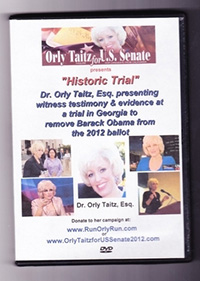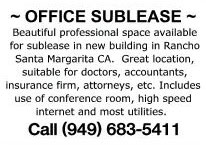The tide is turning against corrupt banks that bankrupt this economy and American people.
Posted on | October 26, 2009 | Comments Off on The tide is turning against corrupt banks that bankrupt this economy and American people.
Decent judges are rising. Federal District court in Id came with a very favorable decision. What it means, is that if the bank sold a note to your house, they cannot collect mortgage from you and they cannot foreclose on your house. Currently I am handling cases dealing with 3 major banks. Please, demand to see the original note you signed, when you took out your mortgage. If your bank cannot provide it, call me 949-683-5411 or e-mail dr_taitz@yahoo.com. Put mortgage in the heading in bold. Keep in mind, Obama is only as good as the financial backing he gets.
While We Were Sleeping, Idaho Took the Lead: In re Sheridan — Real Party Must Have Actual Pecuniary Interest
NOW AVAILABLE ON AMAZON KINDLE
“The real party in interest in relief from stay is whoever is entitled to enforce the obligation sought to be enforced. Even if a servicer or agent has authority to bring the motion on behalf of the holder, it is the holder, rather than the servicer, which must be the moving party, and so identified in the papers and in the electronic docketing done by the moving party’s counsel.”
For 2 years I have been saying “stick with the basics.” Black Letter Law will set you free. But time and again attorneys, pro se litigants and judges go astray and find themselves in never never land. Most attorneys and Judges take preliminary motions with a grain of salt. Virtually all foreclosures would be eliminated if lawyers and judges paid attention to the very beginning of the case. Gator Bradshaw in Florida delivers a nice piece at our seminar on motion practice.
COME TO GARFIELD CONTINUUM SEMINAR NOV 1-2
Your job is to immediately focus the Judge’s attention on the fatal defects presnted by the actions of the intermediaries in the securitization process and more specifically, whoever is attempting to foreclose. By failing to challenge this at the outset you have effectively waived the issue and now face an uphill battle. This case reported below shows that a mere objection from the Trustee in BKR caused the entire claim of the forecloser to completely collapse.
7 months ago, before any of the landmark decisions reported on these pages, Federal Bankruptcy Judge Myers in Idaho was presented with an objection from the Trustee to Motion for Relief From stay. Full pdf version at Sheridan_decision Idaho BKR J Myers
That the Trustee took up the cause is reason enough to note this case. What the Court did with it, in an articulate, well-reasoned memorandum of decision, is nothing short of startling in its clarity. One by one, this Judge takes down the arguments and tactics of the intermediaries in the securitization chain and basically says that none of them has a right to make a claim.
In short, just as in these pages, the Judge doesn’t say say who CAN assert and enforce the claim, he just says that none of these nominees, intermediaries, conduits, bookeepers, servicers, MERS, or pretender lenders has any pecuniary interest in the outcome and therefore they lack standing to be in court. On jurisdictional grounds, therefore, the case is closed and these interlopers are thrown out of court. Will the REAL Lender please stand up? Maybe, maybe not.
The Judge points out that “The Motion further alleges that Debtors were indebted at filing “to Movant” and that the debt arose out of a promissory note and a deed of trust dated September 20, 2006 “naming Movant as beneficiary.”
This Judge also addresses the issue of burden of proof, a sticking point for many readers of this blog. He states that the burden is on the movant to prove standing, not on the homeowner or petitioner to prove lack of of standing. In fact, pointing to the rules again, he says that the pleading must “[p]rovide the details of the underlying obligation or liability upon which the motion is based;” In a stroke of his pen, this Judge ends the issue over who has the burden of proof and even provides grounds BEFORE DISCOVERY for dumping fraudsters out of court. They must plead the allegations, and they must attach documentation that shows their pleadings are true and correct. This Judge is telling fraudsters to stop coming to court with attorney affidavits that are not evidence (see his memorandum) and to stop submitting affidavits, notes, revisions to notes, late indorsements, assingments that don’t match up with the pleadings or the requirements of pleading.
Id.
UNITED STATES BANKRUPTCY COURT
DISTRICT OF IDAHO
IN RE )
) Case No. 08-20381-TLM
DARRELL ROYCE SHERIDAN, )
SHERRY ANN SHERIDAN, )
) Chapter 7
Debtors. )
________________________________ )
MEMORANDUM OF DECISION
________________________________________
INTRODUCTION
In this Chapter 7 case, the trustee, Ford Elsaesser (“Trustee”), objects to a
motion under § 362(d) for relief from the § 362(a) automatic stay.
§ 362(d) are common in bankruptcy cases.
promptly to entry of an order, after proper notice, without any objection.
1 Motions under2 Most stay relief requests proceed3
However, changes in mortgage practices over the past several years have
created a number of new issues. The one highlighted in this case is the standing of
4
& Kronz
(Bankr. D. Idaho 2008). Debtors indicated in their § 521 statement of intention that they would
(continued…)
There was no objection, and the exemption was therefore allowed.
MEMORANDUM OF DECISION – 2
the moving creditor. Serial assignments of the mortgagee’s interest(s) and the
securitization of mortgages have complicated what was previously a generally
straight-forward standing analysis. Though many creditors provide in their
motions adequate explanation and documentation of their standing to seek relief
on real estate secured debts, Trustee challenges the adequacy of the subject motion
in this case.
Following hearing and consideration of the arguments of the parties, the
Court determines that Trustee’s objection is well taken and the same will be
sustained. The motion for stay relief will be denied.












 29839 Sta Margarita Pkwy,
29839 Sta Margarita Pkwy, 
 Videography by Barbara Rosenfeld
Videography by Barbara Rosenfeld 

